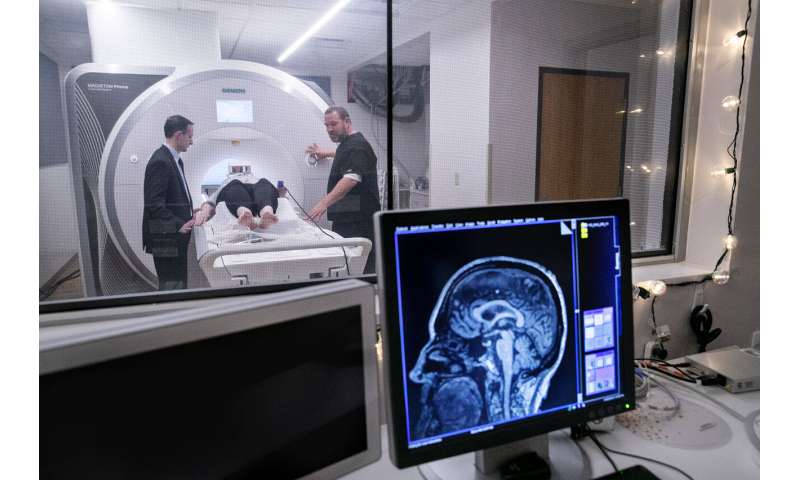Automated, non-invasive MRI can accurately diagnose Parkinson’s

In an international study at 17 MRI centers in the U.S., Austria and Germany, a research team led by UF’s David Vaillancourt, Ph.D., used a non-invasive MRI method with 1,002 patients to develop an automated system to accurately diagnose Parkinson’s disease and related but different neurodegenerative disorders.
In the study published Aug. 27 in The Lancet Digital Health, researchers used diffusion-weighted MRI, an imaging method that measures how water molecules diffuse in the brain and is particularly helpful in identifying where neurodegeneration is occurring.
Parkinson’s disease and related disorders, such as multiple system atrophy and progressive supranuclear palsy, can present a challenge for accurate diagnosis because of shared and overlapping motor and non-motor symptoms. In fact, according to the new study, accuracy of diagnosis in early Parkinson’s is about 58 percent, and more than half of misdiagnosed patients actually have multiple system atrophy or progressive supranuclear palsy.
The new results demonstrate the effectiveness of an automated method to provide a differential diagnosis of the various forms of Parkinson’s.
Source: Read Full Article



